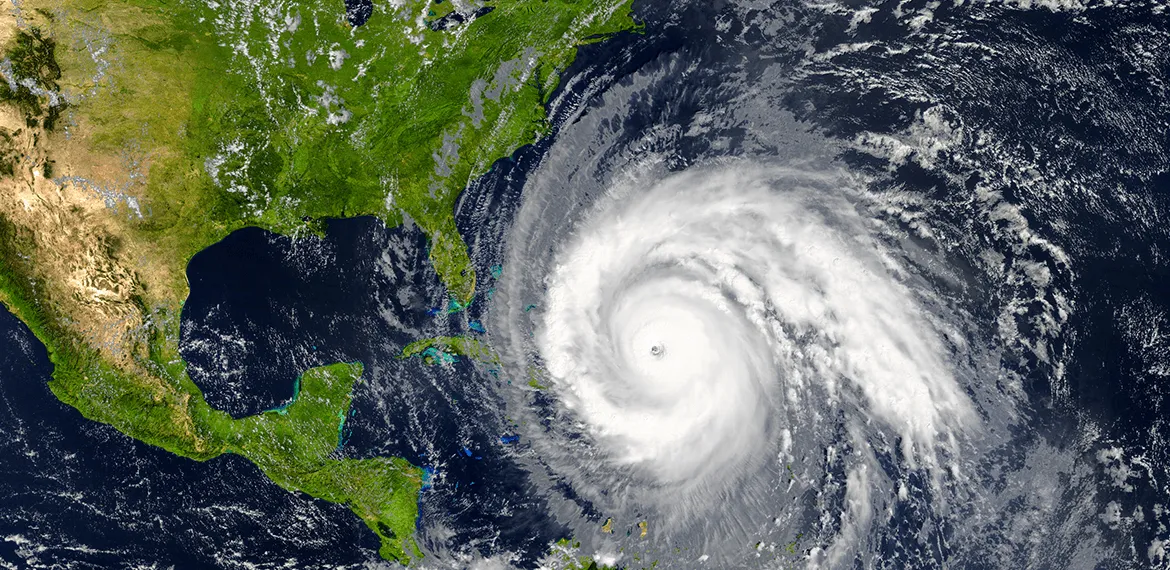
Developing an IT Disaster Recovery Plan for Your Business
Why disaster recovery is an important part of your business continuity plan, what should be included, and how we can help.
Your business continuity plan is exactly what it sounds like. It dictates how you will continue to conduct business during a disaster, such as a hurricane or a cyberattack. Alternatively, your disaster recovery plan is meant to cover your business in worst-case scenarios during these events. A good business continuity plan always includes a disaster recovery plan.
“A disaster recovery plan is there in case your office burns down or floods,” says Jason Monroe, Solution Consultant at Bit-Wizards. “How do you recover quickly enough to continue working?"

Why is a disaster recovery plan important?
“If a disaster impacts your business and you don't have a plan, at the very least, you're going to lose clients, you're going to lose money, and you're going to lose productivity,” Monroe explains.
25% of businesses fail to reopen after a disaster. That means 1 in 4 businesses close their doors.
“Let's say you're an accounting firm, and you haven't backed up any of your clients' documents,” says Monroe. “When a disaster strikes, whether it be a hurricane or a cyberattack, you lose them all. They're gone, and that means you're not reopening. Even if you reopened, you'd likely lose all your clients, your reputation would be destroyed, and people wouldn't trust you.”
Creating and implementing a business continuity and disaster recovery plan can significantly reduce that risk and help your business recover faster.
“You should really be talking to a professional to make sure you're covering all the bases you may not know about,” says Monroe. “If your disaster recovery plan fails, that's a disaster within itself.”

What does my disaster recovery plan need to include?
“You can replace laptops, workstations, monitors, and servers. You can replace all that,” explains Monroe. “But if your data is destroyed and you don't have backups or another cloud-based solution, it's gone. There's no getting it back.”
The kind of backup needed depends on the type of business.
“If you're in the retail business, your financial documents, inventory, spreadsheets, and other things like that can be backed up very easily,” says Monroe. “You don't really have to worry about multiple layers of backups, so you could get away with doing an online backup. That's very economical.”
Conversely, Monroe says multi-location businesses with multiple levels and departments running in conjunction can have very complicated networks.
“The economic cost for businesses like this is definitely going to be part of a budgeted IT spend that you should be working with either your IT department or a professional business to budget for. A high-end backup solution can cost thousands of dollars a year, but it's absolutely necessary.”
Monroe says backups should be the focus of your IT disaster recovery plan, but there are other smaller things you can do as well.
“If you have an expensive server, you need to have the ability to take it with you. What does the workstation situation look like? Do you have spares? Another thing people need to think about is moving their technology up high. If you get three to five feet of flood water, putting your technology up on the second floor of your building could save you a lot of money. If a hurricane hits and you just leave your stuff at your desk and evacuate, those items could be destroyed.”
Monroe says a common misconception is that disaster recovery is handled after the fact. He says it's all about planning and preparedness.
“Your IT disaster recovery plan needs to focus on how to prevent loss. That's how you recover.”

How can managed IT services help with disaster recovery?
With a Managed IT Services provider like Bit-Wizards, you'll never have to worry about backups.
“We're constantly thinking about ways to improve our backups,” says Monroe. “We are pulling random backups because we do not consider it a working backup until we've pulled it, restored it, and checked it to ensure it's functional. Providers can put data anywhere and everywhere and store it, but they may never know whether it's good. At Bit-Wizards, we pull it randomly and check it, so we know the backup is viable.”
Bit-Wizards will help you form a plan and execute it.
“We're always looking out for our clients,” Monroe says. “If a hurricane comes into the gulf, we're emailing clients to let them know our business continuity plan is in place. We're telling them not to worry because even if we have to evacuate, our help desk will continue functioning so they can get assistance. We'll give our clients pointers so that all they have to worry about is getting up, walking away, and focusing on being safe. As long as they have internet, no matter where they are, they can still work. A managed IT service will help take care of everything for you.”
Monroe says the Bit-Wizards Managed IT Services team goes above and beyond to ensure clients are taken care of, their backups are safe, and their networks are secure.
“IT companies come and go, but Bit-Wizards has been on the Gulf Coast for 23 years. We know what we're doing.”
Need help with business continuity and disaster recovery before a storm strikes? Learn about our services and get in touch.